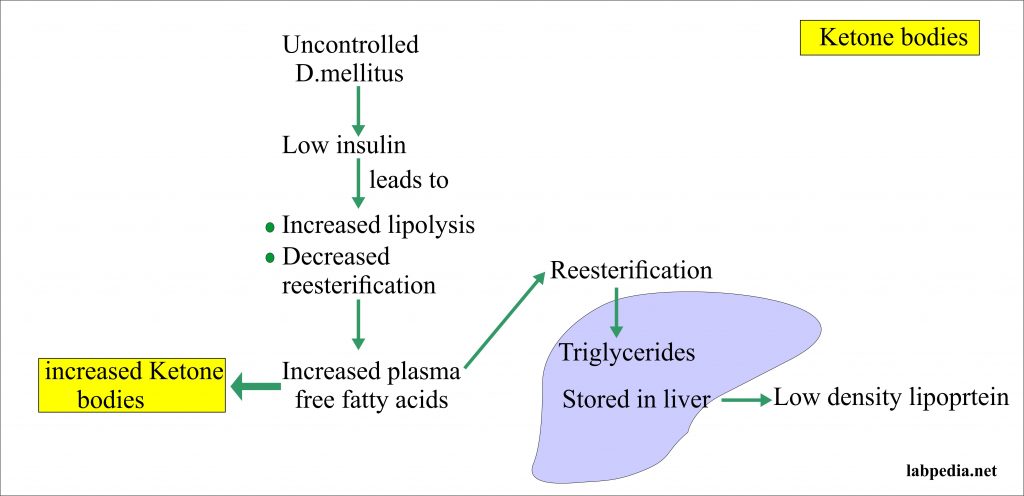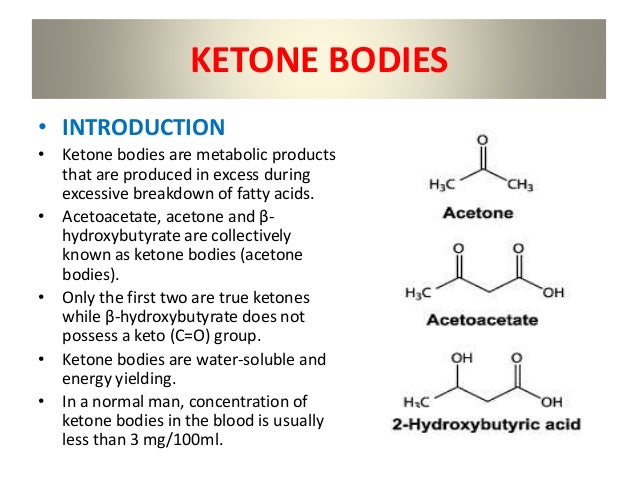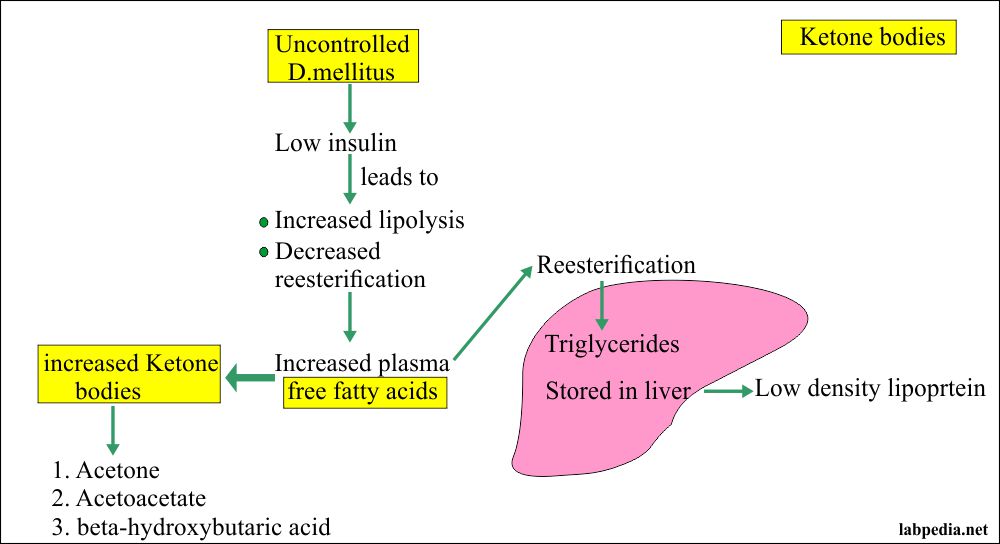why are ketone bodies increase in diabetes mellitus Diabetes mellitus:- part 7 – diabetic ketoacidosis and ketone bodies
One fascinating aspect of the human body is its ability to produce ketone bodies. Ketone bodies are organic compounds that are synthesized from fatty acids in the liver when glucose is not readily available as an energy source. This process, known as ketogenesis, plays a vital role in maintaining energy balance and providing an alternative fuel source during times of fasting or low carbohydrate intake.
Why Ketone Bodies Are Produced
Our bodies primarily rely on glucose as the main source of energy to fuel cellular processes. However, in situations where glucose levels are low, such as during prolonged fasting or when following a strict low carbohydrate diet, the body needs to find an alternative energy source. This is where ketone bodies come into play.
 Ketone bodies, also known as ketones, are produced through a metabolic pathway that starts with the breakdown of fatty acids. They serve as an efficient fuel source for many organs, including the brain, during times of glucose scarcity. Ketones provide an energy source that can easily cross the blood-brain barrier, supplying approximately 70% of the brain’s energy needs when glucose is limited.
Ketone bodies, also known as ketones, are produced through a metabolic pathway that starts with the breakdown of fatty acids. They serve as an efficient fuel source for many organs, including the brain, during times of glucose scarcity. Ketones provide an energy source that can easily cross the blood-brain barrier, supplying approximately 70% of the brain’s energy needs when glucose is limited.
In addition to their role as an alternative energy source, ketone bodies have been associated with numerous health benefits. Research suggests that ketones may have neuroprotective properties, protecting against neurodegenerative diseases such as Alzheimer’s and Parkinson’s. They have also been found to alleviate seizure activity in individuals with epilepsy and play a role in regulating appetite and reducing inflammation.
Diabetic Ketoacidosis and Ketone Bodies
Diabetic ketoacidosis (DKA) is a potentially life-threatening complication that can occur in individuals with diabetes, particularly those with type 1 diabetes. It is characterized by high levels of ketone bodies in the blood, causing the blood to become acidic. DKA typically arises when there is a shortage of insulin, leading to an uncontrolled breakdown of fatty acids and subsequent accumulation of ketones.
 In individuals with diabetes, the inability to produce or properly utilize insulin leads to elevated blood glucose levels. Without sufficient insulin, glucose cannot enter cells to provide energy, and the body turns to alternative energy sources like fatty acids. The excessive breakdown of fatty acids results in the production of an excess of ketone bodies, leading to the development of DKA.
In individuals with diabetes, the inability to produce or properly utilize insulin leads to elevated blood glucose levels. Without sufficient insulin, glucose cannot enter cells to provide energy, and the body turns to alternative energy sources like fatty acids. The excessive breakdown of fatty acids results in the production of an excess of ketone bodies, leading to the development of DKA.
The presence of ketone bodies in the blood can be detected through urine or blood tests. Regular monitoring of ketone levels is crucial for individuals with diabetes to prevent the onset of DKA. If left untreated, DKA can lead to severe dehydration, electrolyte imbalances, and even coma or death. Prompt medical attention is essential for managing this condition.
In conclusion, the production of ketone bodies is a remarkable physiological process that allows the body to adapt to situations where glucose availability is limited. While ketone bodies serve as an alternative energy source, their levels must be carefully monitored in individuals with diabetes to avoid the potentially life-threatening condition of diabetic ketoacidosis. Understanding the role of ketone bodies in our metabolism contributes to our knowledge of human physiology and the intricate mechanisms that enable our bodies to function optimally.
If you are looking for What is the Ketogenic Diet? you’ve visit to the right place. We have 5 Pictures about What is the Ketogenic Diet? like Urine Analysis – Part 5 – Urine Analysis, Chemical Examination and, What is the Ketogenic Diet? and also What is the Ketogenic Diet?. Here it is:
What Is The Ketogenic Diet?
 www.dirt-to-dinner.comketones ketone bodies acetone ketogenic bhb acetoacetate hydroxybutyrate urine metabolism blood hydroxybutyric salts ketosis ketoacidosis perfectketo fatty state tissues nutritional
www.dirt-to-dinner.comketones ketone bodies acetone ketogenic bhb acetoacetate hydroxybutyrate urine metabolism blood hydroxybutyric salts ketosis ketoacidosis perfectketo fatty state tissues nutritional
Researchers Have Made A Discovery About How Disease Pathogenesis In The
 debuglies.comketone bodies liver made body fatty disease regulated pathogenesis nafld researchers discovery nonalcoholic fats slideshare crawford scarring protect said fuels
debuglies.comketone bodies liver made body fatty disease regulated pathogenesis nafld researchers discovery nonalcoholic fats slideshare crawford scarring protect said fuels
Urine Analysis – Part 5 – Urine Analysis, Chemical Examination And
 www.labpedia.netketone bodies ketoacidosis urine diabetic formation mellitus diagnosis labpedia acids fatty examination interpretations insulin
www.labpedia.netketone bodies ketoacidosis urine diabetic formation mellitus diagnosis labpedia acids fatty examination interpretations insulin
Why Ketone Bodies Are Produced In The Body? | DiabetesTalk.Net
 diabetestalk.netketone bodies metabolism body fatty oxidation acids degradation lipids diabetestalk produced why ii human
diabetestalk.netketone bodies metabolism body fatty oxidation acids degradation lipids diabetestalk produced why ii human
Diabetes Mellitus:- Part 7 – Diabetic Ketoacidosis And Ketone Bodies
 www.labpedia.netketone diabetes bodies mellitus ketoacidosis diabetic formation uncontrolled part fatty acids labpedia
www.labpedia.netketone diabetes bodies mellitus ketoacidosis diabetic formation uncontrolled part fatty acids labpedia
Why ketone bodies are produced in the body?. Ketone bodies liver made body fatty disease regulated pathogenesis nafld researchers discovery nonalcoholic fats slideshare crawford scarring protect said fuels. Researchers have made a discovery about how disease pathogenesis in the